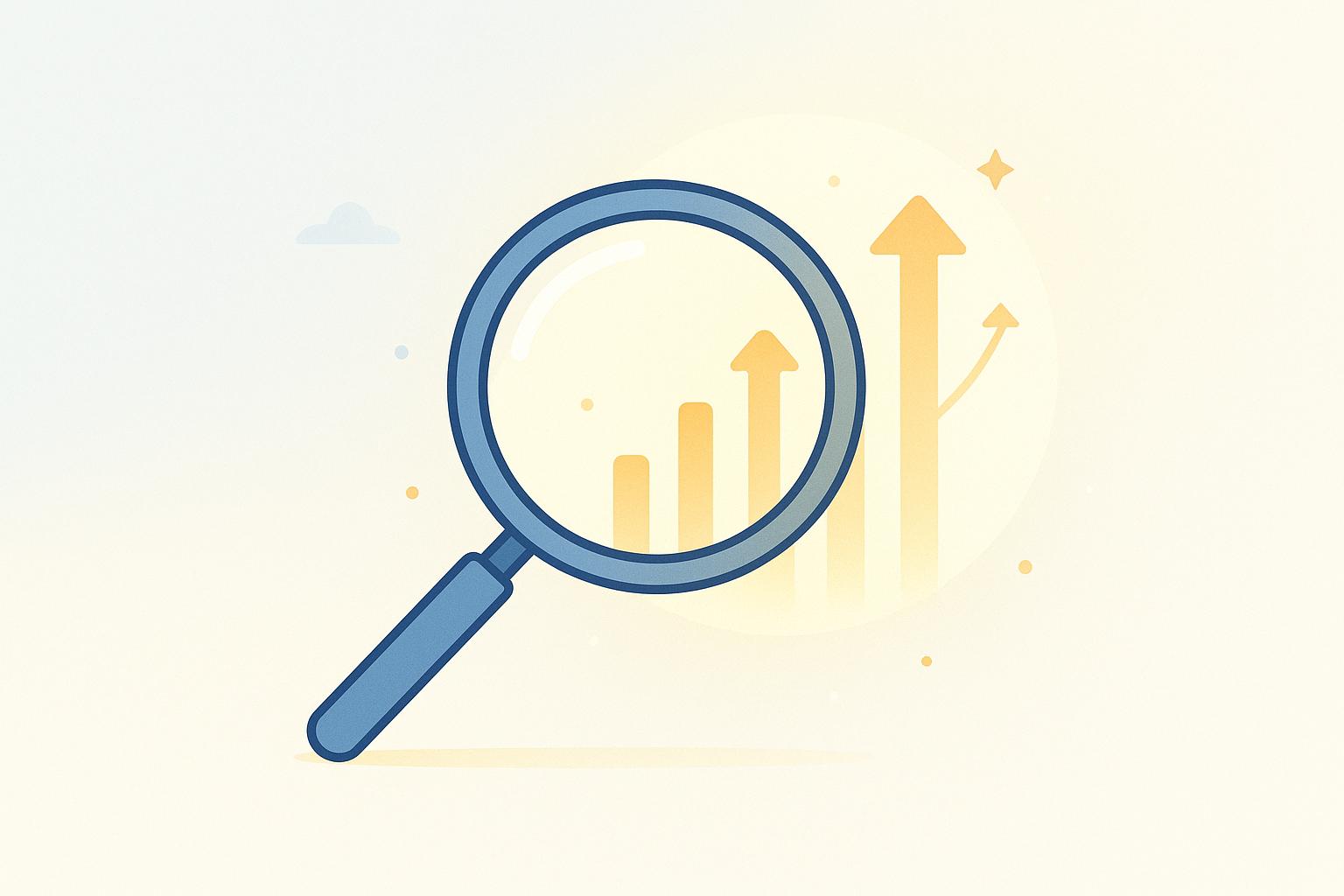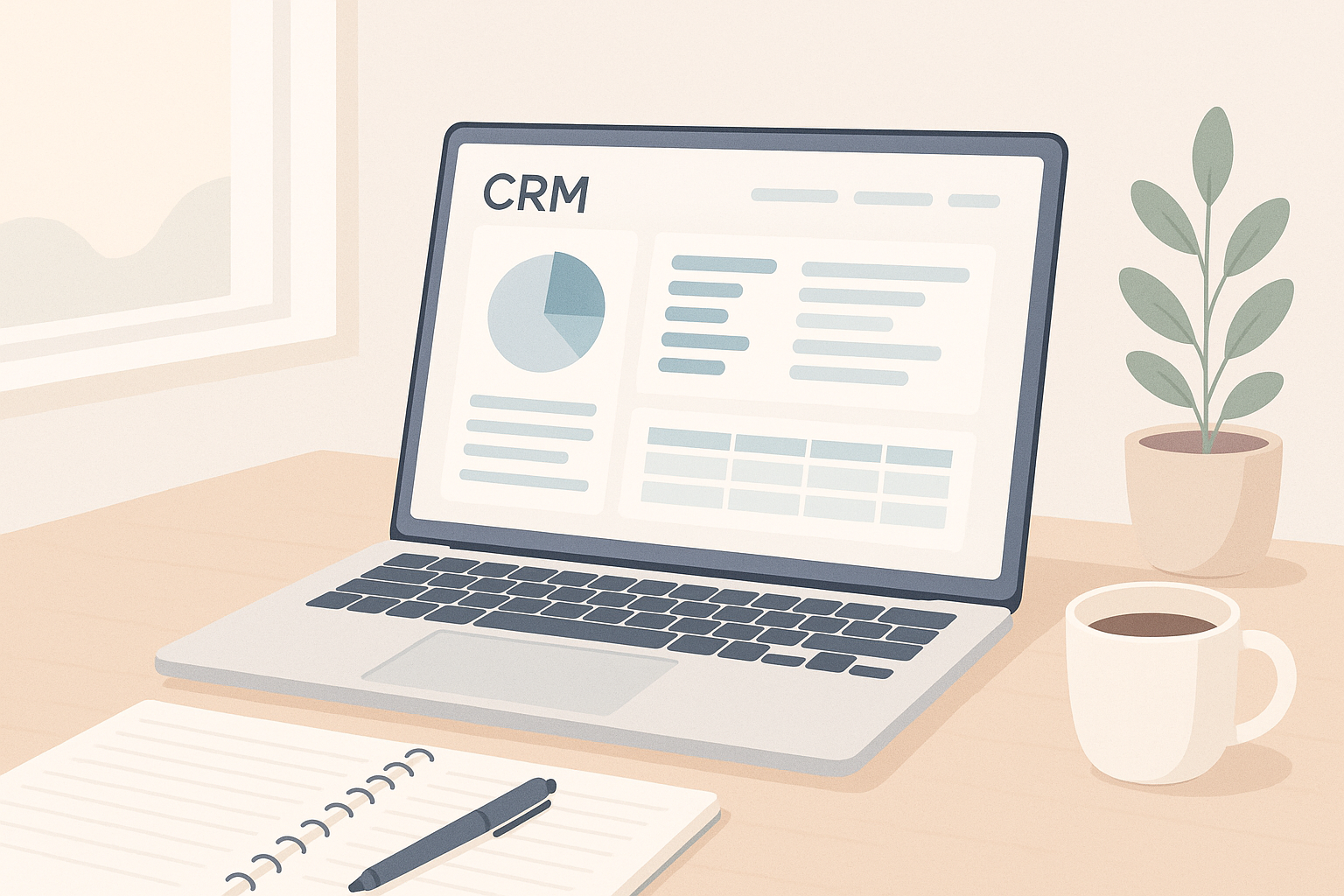Want to protect user data while running a business? Privacy-first CRM design is the answer.
Here’s how it works:
- Focus on Consent: Collect only the data you need and ensure users give permission.
- Built-in Security: Use encryption, access controls, and automated compliance checks.
- US Privacy Law Compliance: Adhere to regulations like CCPA, HIPAA, and GLBA.
- Automated Privacy Tools: Manage data retention, consent tracking, and access requests seamlessly.
A great example is Hatrio Sales, a CRM platform that integrates privacy into every feature - from lead generation to email campaigns - while boosting customer trust and business outcomes.
Privacy isn’t just about compliance; it’s a way to build trust, improve data quality, and even increase sales.
Privacy-First CRM System Design
Built-in Privacy Features
Privacy-first CRM systems prioritize data protection by embedding it directly into their architecture. This "privacy by design" approach ensures security is an integral part of the system. Hatrio Sales exemplifies this by implementing privacy controls across its lead generation and campaign management tools.
Here are some key privacy features:
| Feature | Purpose | How It Works |
|---|---|---|
| Data Minimization | Limit data collection to what's necessary | Configurable fields and optional data inputs |
| Consent Management | Track and manage user permissions | Automated systems for consent tracking and verification |
| Data Lifecycle Controls | Manage how long data is retained | Automated deletion and archiving tools |
| Access Logging | Monitor system activity | Detailed logs and audit trails |
Security Components
Protecting sensitive customer data requires a strong set of security measures. These components work together to create layered defenses:
1. Encryption Systems
- Uses 256-bit AES, TLS 1.3, and end-to-end encryption to secure sensitive data and communications.
2. Access Control Framework
- Includes role-based access control (RBAC), multi-factor authentication (MFA), auto-timed session logouts, and IP-based access restrictions.
3. Data Storage Protection
- Features encrypted databases, scheduled backups, geographic data residency controls, and redundant storage systems to safeguard information.
Privacy Monitoring Systems
Continuous monitoring is essential to ensure privacy measures are effective and compliant with evolving regulations. These systems actively track and respond to risks, keeping data secure.
| Monitoring Component | Function | Update Frequency |
|---|---|---|
| Activity Monitoring | Tracks user actions and system access | Real-time |
| Compliance Checking | Ensures adherence to privacy laws | Daily |
| Threat Detection | Identifies security risks | Continuous |
| Policy Updates | Keeps privacy standards current | Quarterly |
The monitoring system includes automated alerts for suspicious activity and periodic privacy impact assessments. For example, Hatrio Sales integrates continuous monitoring into its sales automation workflows, ensuring data protection at every stage. These tools help identify and resolve vulnerabilities before they become issues, providing a strong foundation for advanced protection measures discussed in the next section.
Data Protection Features
Data Security Methods
CRM systems rely on multiple layers of security to keep data safe. This includes strong encryption, secure data transmission, controlled access, and dynamic session management. Hatrio Sales applies these measures across its lead management and sales automation tools, safeguarding data during every stage of processing.
User Permission Controls
In addition to securing data, precise permission settings limit who can access it. Businesses can define access based on roles, set temporary permissions, and manage consent workflows. Detailed logs track access attempts and changes, aiding in compliance efforts. Hatrio Sales provides a flexible permission system that lets organizations control access while maintaining complete records of activity.
Data Storage Rules
Effective data storage policies are key to maintaining privacy. Information is collected only when necessary, stored securely with regular backups, and managed with strict archiving and deletion rules to meet legal standards. Hatrio Sales automates these policies and offers tools for users to manage their data, ensuring a strong focus on privacy and maintaining customer trust.
Meeting Privacy Requirements
US Privacy Law Compliance
Privacy-focused CRM systems must adhere to key US regulations like the California Consumer Privacy Act (CCPA) and the Health Insurance Portability and Accountability Act (HIPAA). These platforms often rely on automation to handle tasks such as managing data access requests, keeping consent records, and enforcing data retention policies.
Hatrio Sales simplifies compliance by offering automated tools that:
- Handle and track data access requests
- Record and verify user consent
- Apply data retention policies
This setup establishes a clear framework for managing data responsibly.
Data Usage Guidelines
Having clear data usage guidelines helps prevent misuse and ensures smooth operations. Modern CRM systems enforce strict rules on how data is collected, processed, and shared.
Some key elements include:
- Data Collection Standards: Determine what data is necessary and set clear limitations on its use. Regular audits ensure compliance.
- Processing Rules: Define approved use cases, document procedures, and use monitoring systems to oversee data handling.
- Access Controls: Limit access to only those who need it (least-privilege principle), review permissions frequently, and log user activities.
These measures help create a structured approach to data management, ensuring all interactions with data serve a clear purpose.
Privacy Communication
Transparent communication about privacy practices is essential for building trust and meeting legal requirements. Privacy-focused CRM systems include tools to keep users informed and maintain transparency.
| Communication Element | Purpose | Implementation |
|---|---|---|
| Privacy Policy Updates | Notify users of policy changes | Automated notification system |
| Consent Management | Record user choices | Interactive consent forms |
| Access Request Responses | Meet legal obligations | Standardized response templates |
Hatrio Sales takes privacy communication to the next level with features that:
- Automate notifications for policy updates
- Maintain detailed consent records
- Generate privacy notices
- Handle data access requests efficiently
- Log and document all privacy-related communications
These tools make it easier for businesses to stay transparent and compliant while managing user data responsibly.
sbb-itb-b22f30c
S3E7: 'Personal CRM: Embracing Digital Minimalism & ...
Business Benefits of Privacy Protection
By prioritizing secure CRM design and adhering to compliance measures, businesses can achieve real gains in both customer trust and sales performance.
How Privacy Builds Customer Trust
Strong privacy protection fosters trust, which translates into tangible business benefits:
- Better data quality from willingly shared customer information
- Higher engagement with sales communications
- Improved customer retention
- Enhanced brand image in privacy-conscious markets
This is especially important in B2B settings where sensitive company data is frequently exchanged.
Privacy in Sales Tools
Sales tools designed with privacy in mind can still deliver exceptional results. A great example is Hatrio Sales, a sales automation platform with privacy-focused features, now used on over 104,000 websites.
In Q3 2023, a startup demonstrated the impact of privacy-centric sales strategies. Using Hatrio Sales, the company managed its entire sales funnel while adhering to strict privacy standards. Key features included:
- Privacy-compliant email collection from professional networks
- Secure lead verification and enrichment
- Campaign management designed with privacy in mind
- Responsible lead scoring
The result? A 20% increase in closed deals compared to the previous quarter. This case highlights how integrating privacy into sales processes can drive measurable success.
Privacy as a Competitive Advantage
Privacy protection is no longer just about meeting regulations - it’s a way to stand out. A privacy-first approach offers long-term benefits across multiple business areas:
| Business Area | Privacy-Driven Benefit |
|---|---|
| Lead Quality | Higher-quality leads from consent-based data collection |
| Sales Efficiency | Optimized workflows with privacy-compliant tools |
| Market Position | Stronger reputation as a trustworthy partner |
| Compliance | Lower risk of data breaches and fines |
"I'm using Hatrio Sales to find email addresses for outbound sales & Email Campaign. Our sales funnels are fully managed by them - from prospecting to qualifying to closing sales." - Happy Customer
Summary
Designing a CRM with a focus on privacy safeguards user data while maintaining smooth sales processes. Hatrio Sales serves as a great example of how prioritizing privacy can lead to scalable and effective outcomes.
Here’s a breakdown of the main elements involved in a privacy-focused CRM design:
| Feature Category | Key Focus Areas |
|---|---|
| Data Collection | Consent-based lead generation from verified sources |
| Data Processing | Secure protocols for enrichment and verification |
| Automation | Sales drip campaigns that comply with privacy laws |
| Access Control | Detailed permission settings with activity monitoring |
| Compliance | Built-in alignment with US privacy regulations |
This method ensures compliance with legal standards while supporting secure and efficient workflows across the sales process.
FAQs
What makes a privacy-first CRM design more secure than traditional CRM systems?
Privacy-first CRM systems prioritize user data protection by incorporating secure architecture and adhering to strict privacy regulations. Unlike traditional CRMs, these systems are built with features like data encryption, limited access controls, and compliance with regulations such as GDPR and CCPA.
By focusing on privacy from the ground up, privacy-first CRMs minimize data exposure risks and ensure user trust. For example, they often include tools for anonymizing sensitive information and monitoring data access to prevent unauthorized usage. This design approach not only safeguards your data but also helps businesses stay compliant with evolving legal standards.
What advantages can businesses gain from using a privacy-first CRM system like Hatrio Sales?
Adopting a privacy-first CRM system like Hatrio Sales ensures that businesses can protect sensitive user data while optimizing their sales processes. By prioritizing data security and compliance, Hatrio Sales helps businesses build trust with their customers.
Key benefits include:
- Streamlined lead management: Access a vast database of over 1.5 billion entries to find and enrich leads, ensuring your team focuses on the most promising opportunities.
- Time-saving automation: Automate repetitive tasks like drip campaigns, follow-ups, and lead scoring, allowing your team to concentrate on closing deals and nurturing relationships.
With Hatrio Sales, businesses can safeguard customer data while enhancing efficiency and driving growth.
How do US privacy laws like CCPA and HIPAA strengthen the security of a privacy-first CRM system?
Compliance with US privacy laws such as the California Consumer Privacy Act (CCPA) and the Health Insurance Portability and Accountability Act (HIPAA) ensures that privacy-first CRM systems adhere to strict standards for data protection. These regulations require businesses to implement robust safeguards, like encryption and access controls, to protect sensitive information.
By following these laws, a privacy-first CRM system not only secures user data but also builds trust with customers. It demonstrates a commitment to transparency, accountability, and ethical data handling, which are essential for fostering long-term client relationships in the United States.



